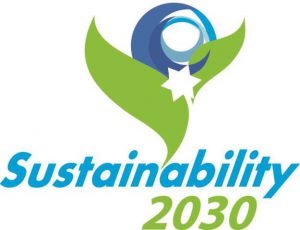Responsible Consumption and Production


SDG 12 - Environmental Issues Abound, with an Eye Toward Sustainability
Israel, like many other countries, has more environmental issues than it would like to count. The population, the economy, society, urbanism, infrastructure and water are among some of the most pressing matters. Israeli environmentalist are pushing forward, however, with real strategies to take on sustainability. To this end, the 2030 project team of the Ministry of Environmental Protection (MOEP) formulated its vision for sustainability:


“Israel in 2030 will be a country whose citizens live in an environment that provides economic wellbeing, social resilience and personal security while enabling a diverse range of community lifestyles. It will be a country that promotes innovation and enterprise, thriving urban life, inclusion and access for all of the population to employment opportunities and services. It will be a country where there is absolute decoupling of economic growth from deterioration of the environment and the continual rise in material consumption. In 2030 the quality of life in Israel of the current generation will be high but will include responsibility for protecting natural resources for the present and future generations.”
Among the strategies that the MOEP outlined for sustainability of consumption, they cite:
– Encouraging industry and innovation for more efficient use of resources, the development of a circular economy and a transition of consumption of products to consumption of services. Businesses should likewise take an active role in international forums that discuss innovation for sustainability and create partnerships with other countries that are committed to sustainability. Finally, businesses should recruit civil society to support and review their innovations.
– Developing and training leaders who feel a strong commitment to sustainability and will lead society to this vision.
– Adoption of evaluation methods to actually measure sustainability and help policymakers plan new courses of action based on results.
– Cultivating values in Israeli society that go beyond material consumption. Generating a deep psychological shift in consumer behavior in order to reduce its consumption of material resources and replace it with behaviors like sharing or collaborative consumption.
The idea behind collaborative consumption is to facilitate the use of assets, products, services or skills that are underutilized. Social networking platforms would be of great benefit to allow the sharing of information about these products and services, for example, travel, clothing, household equipment, children’s equipment and entertainment (some models of sustainable consumption already exist in these areas). Even time, space, and skills could be collaboratively consumed.
To achieve this, consumers would have to be presented with desirable alternatives to material consumption. The government can come into play through education for social values, providing access to information and underutilized public spaces, and building trust between suppliers and users.
It’s a tall order, but collaboration between government, businesses and civil society may just help Israel achieve sustainability of consumption by 2030.


SDG 12 – Collaborating for Change: The Role of Local Leadership in Climate Action-By Dr. Eitan Eliram Lead Innovation Strategist Nov. 2024
Responsible Consumption and Production Nowadays trash is inevitable. Each year our planet becomes home to more than two billion tons of trash, and in Israel


SDG 12- Kenaf Ventures – Growing Buildings Naturally
Responsible Consumption and Production When life gets too messy, sometimes we need to go back to nature’s basic elements. This is the foundation of Kenaf


SDG12- TIPA – Decomposing bad plastic habits with fully compostable ones
Responsible Consumption and Production “Imagine…if you could treat flexible food packaging like an orange peel…like organic waste, a natural resource.” What will become a historical


SDG 12 -Waste not, want not. HomeBiogas
Responsible Consumption and Production The potential for renewable energy is all around us, even the rubbish we just disposed of, it’s right there! Three friends


SDG 12- Spinning Garbage into Gold – the Startup Nation Does It Again
Responsible Consumption and Production SDG 12 -Spinning Garbage into Gold – the Startup Nation Does It Again Turn household, landfill trash into reusable plastic? Impossible!


















